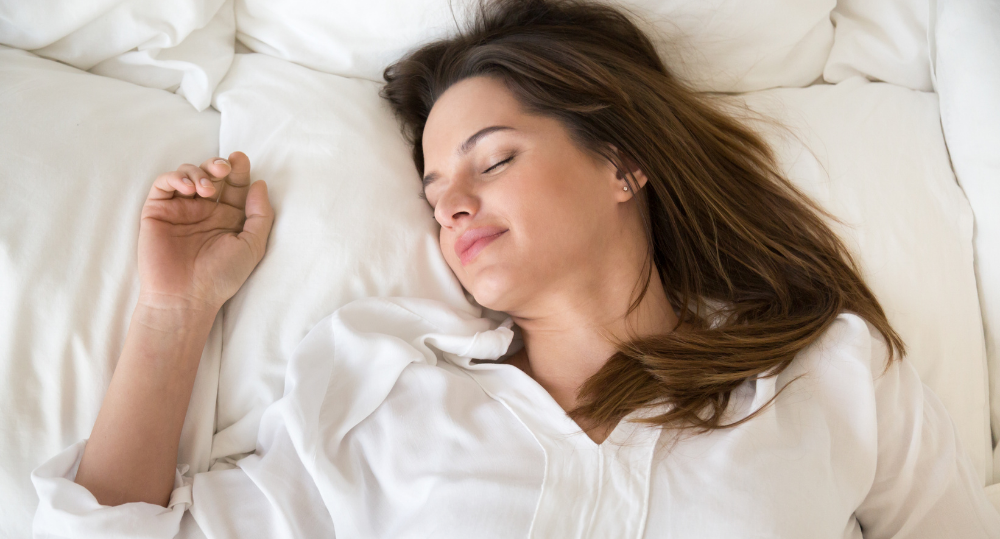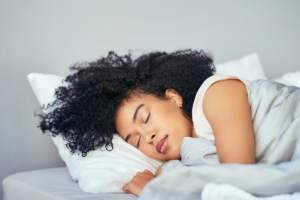Sleep indeed holds a special place in our lives, but do one think that it’s the length of sleep that is most important rather than the quality thereof, this is not the case as the rest we take must be of utmost importance.

The most common signs of poor sleep quality, for instance, would be struggling to fall asleep, constantly waking up throughout the night, waking up tired regardless of how many hours they’ve spent sleeping, and, rather disappointingly, sore muscles or other discomforts.
There are the following interventions that you can apply in order to sleep better:
-
Create an Easy Schedule
Most everyone has dealt with a tossing and turning night from time to time, however while a one time ordeal is still annoying, poor sleeping as a consistent factor is much more serious, this condition has been known to exhibit symptoms of anxiety, depression and worst case scenario knocking at the door and inviting high blood pressure, obesity, heart diseases and diabetes.
Creating a wind down routine can in fact help improve the quality and efficiency of sleep. Approach your work, sensitive issues or controversial topics about two hours to sleep and wind those issues and activities, this would leave you with engaging pleasant activities such as watching Netflix, Intaking a warm shower, reading, and meditating, alternatively you could use breathing patterns in tune with soothing sounds to help calm your nerves.
Tap your doctor or therapist without waiting if you continue to fall short of your goal of sleeping soundly. You’ll notice a lot of positive changes in yourself if you follow the formula of sleeping to how many three therapists can help cater to the stress you might feel throughout the day.
-
Put A Stop To Caffeine Consumption
Caffeine is a powerful stimulant and enhances the ability to concentrate, remain alert, and increase physical performance. It’s worth noting, however, that too much caffeine consumption before going to bed can negatively impact both the quality and amount of sleep one gets.
Caffeine consumption has the effect of blocking adenosine which in turn stimulates the central nervous system and clears derealization caused by neurotransmitters and derealization on sleep promoting neurotransmitters. Due to caffeine’s potency and neurotransmitters’ effects on other chemicals, wireges become more frequent, which causes heart palpitations and anxiety in most people—other individuals may find it easier to consume more. Also, as time passes, a few people develop intolerancy which enables them to consume larger amounts of the chemical but need more for it to take effect.
The studies highlighted that caffeine could negatively affect sleep in the future, but it remains unclear whether it has a direct impact on the feeling of sleepiness. Therefore, it is best to limit the amount of caffeine consumed at least six hours before going to bed.
Poor sleep patterns can lead to an increased reliance on caffeine and result in poor quality of sleep. And with respect to caffeine reliance, changing to comfortable use of caffeine in such a manner as to enhance the mornings can actually aid the problem. This makes all the exercises beneficial as they will all be quality sleeping. To ensure natural circadian rhythms are maintained and alertness is enhanced first feeling in the morning, other forms of exposure to light which include normal sunlight and light therapy boxes can be introduced.
-
Reduce Amount of Time Spent on Screens
Screens have been known to contain blue rays which have been associated with daylight. This is known to combat melatonin which is a hormone important for sleeping.
Exposure to bright electronic screens before sleeping is not great for vision. If you are using a smartphone or a tablet right before you sleep, the device’s bright display combined with the blackened surroundings can stress your eyes leading to blurry vision, dry eyes, and long-term damage.
Practicing ways to minimize screen time at least an hour before going to bed is highly advisable. You can set a time limit on technology use and take up other activities like reading, having a warm bath, or meditating and this will alleviate exhaustion. You can also modify the settings and or apply a blue shade on your devices that helps maintain lower brightness or change it to the IoT’s Night mode.
-
Alter Your Sleep Place
Research indicates that traditional napping has its place in preventing tiredness based on the setting. Make your bed and the entire bedroom clinically the place which beds are adding, removing or changing furniture pieces, noise and light level, and even the sheets used for bedding you sleep on.
It is it is recommended to add extra blankets in your bedroom, so that the heat is contained in your deft senses muscles and nerves letting you sleep quickly and soundly, so that the light is kept at the lowest, and no sounds can be heard. Fewer radiant lights from outside can be achieved by adding and or improving your deafen system and altering your curtains and shades in your windows and adding and or improving other devices that do not emit light including television sets.
People residing in places with lots of noise can effectively combat the situation by utilizing a white noise machine or soundproofing their houses. Wearable material such as rugs and curtains which assist and lessen external sounds can also help. Besides, ear plugs can cut down unwanted sounds to very low levels. Also, Tempur-pedic bedding combined with woolen and linen materials is equipped to improve the sleep of a person – while wool helps adults go to sleep quicker, linen enhances slow-wave sleep in younger adults.
-
Enough Exercise
Exercise not only helps to sleep but even has unique additional benefits. Exercise increases energy, promotes weight loss, reduces back as well as neck pains, lowers stress and elevates moods.
A cloud of evidence supports the ‘exercise gives you good sleep’ claim, although the frequency of workouts says a lot about effectiveness.
You must first identify a workout plan that suits your sleep schedule and get used to it until it makes a visible change in your body.
Sleep requirements of healthy adults fall within a range of seven to nine hours although such requirements for sleep vary individually. Seek advice from a health practitioner fast to ascertain normally there’s a health problem disrupting your sleep pattern and so you are unable to rest adequately. In most cases, all that is needed are some lifestyle and or treatment adjustments and that would increase a person’s sleep quality immensely and even his overall feeling!




